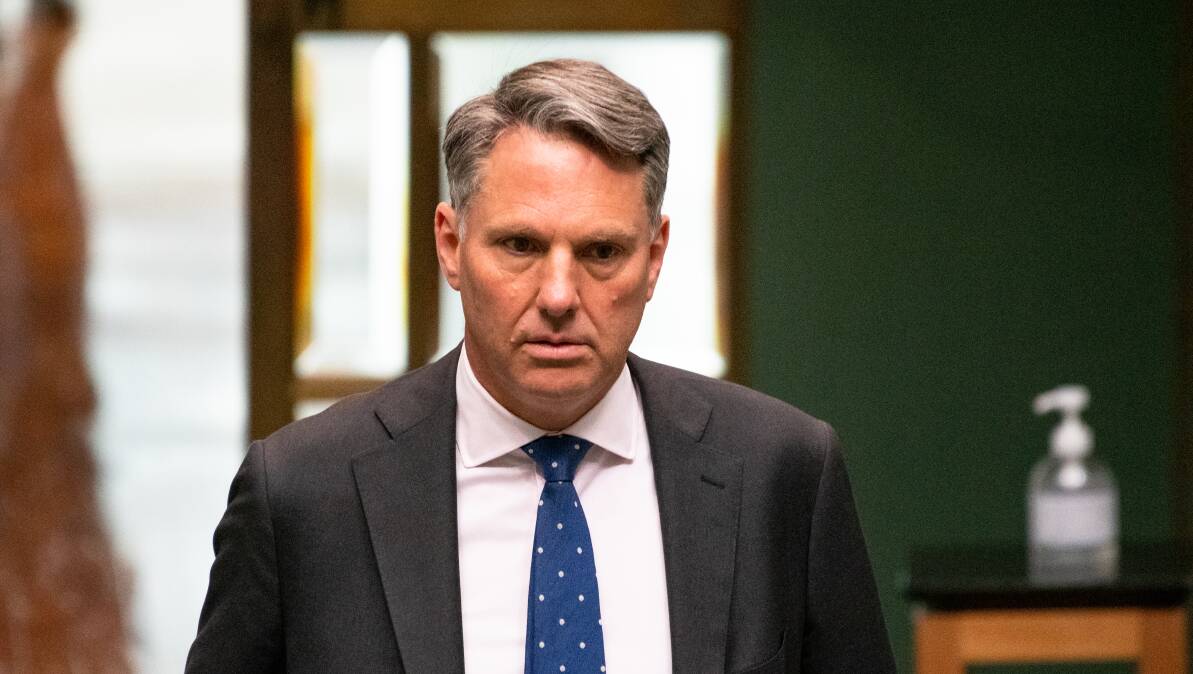
In the magical world of theory a Defence White Paper is wise: a careful, judicial and bipartisan approach establishing how we can best defend the country. Reality is very different. The three services - army, navy and airforce - all have different approaches, which is why Defence Minister Richard Marles has commissioned the current Strategic Review. It will provide him with a cudgel, allowing him to beat the service chiefs back into their boxes and giving Mr Marles a sensible means of arbitrating between their competing claims for increasingly expensive equipment. This is vital, because the key shortage in defence is not ideas - it's money.
Over the past decade successive coalition governments established a massive purchasing program, paid for by successive revenue windfalls, thanks to booming minerals exports. Unfortunately the costs of properly resourcing other areas of government expenditure (such as health, aged care, and the NDIS) have, like defence, also grown exponentially. Although there's still been enough money to buy new weapons, operating them effectively is about to become a huge challenge.
Procuring hugely expensive systems like nuclear submarines is one challenge but bringing them into service is equally problematic. In the US for example, sub commanders are remunerated like service chiefs over here and weapons systems require continual upgrading to keep them current. Operating an effective, independent force of six nuclear submarines would require government to either slash other programs or raise taxes - both of which are political impossibilities. This explains why the first thing Minister Marles did after being appointed was to establish a detailed strategic review into the very basis of the country's defence. This will give him the political cover he needs to decide how the increasingly scarce dollars are to be shared out among the ambitious, squabbling and demanding commanders, all of whom are clamouring for more.
The fact that Mr Marles is deputy Prime Minister demonstrates he has political smarts and his choice of individuals to conduct the Review was equally unimpeachable. As far as the public are concerned, former Defence Force Chief Angus Houston stands (not just literally) head and shoulders above any civilian strategist as a chief drafter of this document. His reputation and experience as a commander ensures the recommendations will disarm any assault from the coalition that accuses Labor of being soft on defence. Nobody believes Houston would ever put his name to anything that risked the country's security. His work adds intellectual heft to the hard choices that need to be made in deciding where the dollars will be spent. The public trusts the former chief to carefully balance the competing requirements and make hard choices for the right reasons. More importantly, his involvement will also carry weight among those in uniform.
Mr Marles has, however, also been careful to give himself cover from the left by involving former (Labor) Defence Minister Stephen Smith as co-writer of the review. As prime minister, Julia Gillard slashed defence expenditure and Smith gained a well-deserved reputation for counting every penny spent. Nobody on the left will accuse this review of indulging in procuring gold-plated, unnecessary equipment.
This all makes the job of opposition defence spokesman Andrew Hastie virtually impossible. Any attack on the review pits the coalition directly against Houston. This is not a fight that the coalition will risk.







